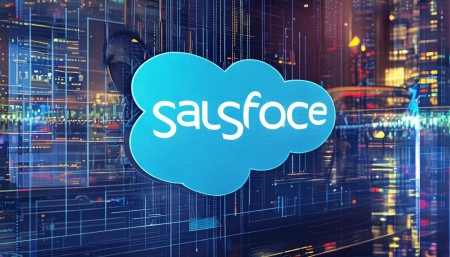
△Click on the top right corner to try Wukong CRM for free
Hey there! So, you're curious about well-known CRM software, huh? Well, you've come to the right place. Let me tell you, in today's fast-paced business world, having a good Customer Relationship Management (CRM) system is like having a superpower. It’s not just about keeping track of your customers; it’s about understanding them, connecting with them, and making sure they feel valued. And trust me, when your customers feel valued, they stick around.
Now, let’s dive into some of the most popular CRM software out there. First up, we’ve got Salesforce. Oh, where do I even start with this one? It’s like the big kahuna of CRMs. You know, the one that everyone talks about at those tech conferences. Salesforce is more than just a CRM; it’s a whole ecosystem. Imagine having a tool that can help you manage sales, customer service, marketing, and even analytics—all in one place. It’s pretty much like having a Swiss Army knife for your business. Plus, it’s super customizable, so you can tailor it to fit your specific needs. But, hey, with great power comes great complexity, and sometimes it can be a bit overwhelming, especially if you’re new to the CRM game.

Next on our list is HubSpot. Now, if you’re looking for something a bit more user-friendly, HubSpot might just be your cup of tea. This platform is all about inbound marketing, which means it helps you attract, engage, and delight your customers. It’s like having a personal assistant who knows exactly what your customers want before they even ask. HubSpot is great for small to medium-sized businesses, and it’s got a free version too, which is always a plus. The interface is clean and intuitive, and it integrates seamlessly with a bunch of other tools, so you don’t have to worry about juggling multiple platforms.
Then there’s Zoho CRM. If you’re a fan of simplicity and affordability, Zoho is definitely worth checking out. It’s like the no-nonsense, get-the-job-done kind of CRM. Zoho offers a lot of the same features as the big players, but at a fraction of the cost. It’s perfect for startups and small businesses that need a robust CRM without breaking the bank. Plus, it’s got a ton of integrations, so you can connect it with your email, social media, and even your accounting software. It’s like having a Swiss Army knife, but one that doesn’t require a PhD to use.
Another player in the CRM arena is Pipedrive. Now, if you’re in sales, you’ll love this one. Pipedrive is all about helping you close deals. It’s like having a personal coach who keeps you on track and motivated. The pipeline view is super visual, so you can see exactly where each deal is in the process. It’s great for teams that need to stay organized and focused. Plus, it’s got some cool automation features that can save you a ton of time. Think of it as your secret weapon for hitting those sales targets.
And then there’s Microsoft Dynamics 365. If you’re already using a lot of Microsoft products, this one might be a no-brainer. It’s like the big brother of CRMs, with a lot of muscle behind it. Dynamics 365 is part of the Microsoft ecosystem, so it integrates seamlessly with Office 365, Outlook, and other Microsoft tools. It’s got a lot of advanced features, like AI and machine learning, which can help you make smarter decisions. But, like Salesforce, it can be a bit complex, so you might need some training to get the most out of it.

Now, let’s talk about Freshsales. This one is like the underdog that’s quickly gaining popularity. Freshsales is all about simplicity and ease of use. It’s got a clean, modern interface, and it’s packed with features that are specifically designed for sales teams. It’s got built-in phone and email integration, so you can manage all your communications in one place. Plus, it’s got some nifty AI-powered features that can help you prioritize leads and predict deal outcomes. It’s like having a crystal ball for your sales pipeline.
And, of course, we can’t forget about Agile CRM. This one is like the jack-of-all-trades. It’s got a little bit of everything—sales, marketing, and service. It’s great for small to medium-sized businesses that need a comprehensive solution without the complexity. Agile CRM is known for its affordability and flexibility. It’s got a lot of automation features, so you can set up workflows and save time. Plus, it’s got a free version, which is always a bonus. It’s like having a multitool that can handle all your CRM needs.
So, there you have it—a quick rundown of some of the most well-known CRM software out there. Each one has its own strengths and weaknesses, so it’s really about finding the one that fits your business best. Whether you’re a small startup or a large enterprise, there’s a CRM out there that can help you take your customer relationships to the next level.
Alright, now that we’ve covered the basics, let’s dive into some common questions people have about CRM software. I’m sure you’ve got a few burning questions, so let’s get to it!

Q: Which CRM is the best for a small business? A: For small businesses, I’d recommend starting with something like HubSpot or Zoho CRM. Both are user-friendly, affordable, and offer a lot of features that can help you grow. HubSpot is great for inbound marketing, while Zoho CRM is a solid all-rounder that won’t break the bank.
Q: Is it hard to switch from one CRM to another? A: Switching CRMs can be a bit of a hassle, but it’s definitely doable. Most CRMs offer data migration tools, and there are third-party services that can help you transfer your data. The key is to plan ahead and make sure you have a clear strategy for the transition. It’s a bit like moving to a new house—you need to pack everything up, label it, and make sure nothing gets lost in the process.
Q: Can I use a CRM for both B2B and B2C? A: Absolutely! Many CRMs, like Salesforce and HubSpot, are designed to handle both B2B and B2C. The key is to customize the CRM to fit your specific needs. For B2B, you might focus more on account management and long-term relationships, while for B2C, you might focus more on individual customer interactions and loyalty programs. It’s like having a toolbox with different tools for different jobs.
Q: How much does a CRM typically cost? A: The cost of a CRM can vary widely depending on the features and the number of users. Some CRMs, like HubSpot and Zoho, offer free versions with basic features. Paid plans can range from a few dollars per user per month to hundreds of dollars, depending on the level of functionality you need. It’s like buying a car—there are budget options and luxury options, and you get what you pay for.

Q: Do I need any special training to use a CRM? A: While many CRMs are designed to be user-friendly, some may require a bit of training, especially if you’re using more advanced features. Most CRM providers offer training resources, like tutorials and webinars, and some even offer dedicated support. It’s like learning to drive a new car—once you get the hang of it, it becomes second nature.
I hope this helps! If you have any more questions, feel free to ask. Happy CRM-ing!

Related links:
Free trial of CRM
Understand CRM system
AI CRM Systems

△Click on the top right corner to try Wukong CRM for free